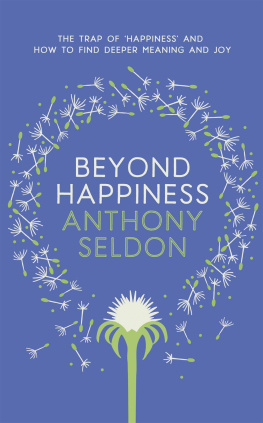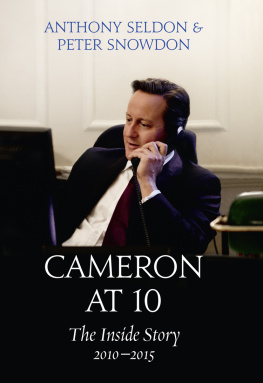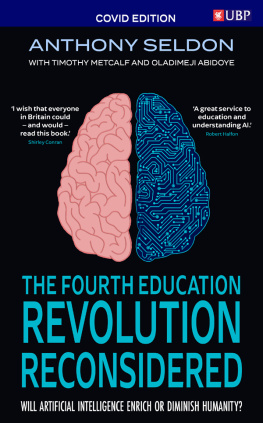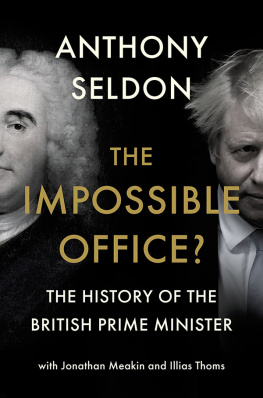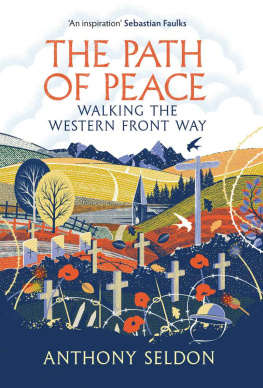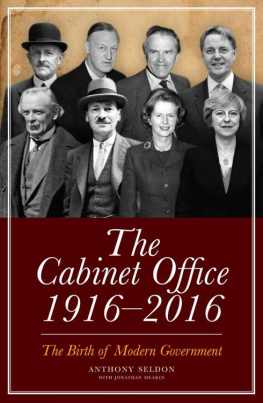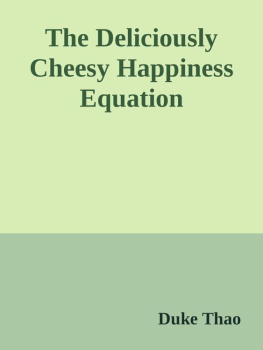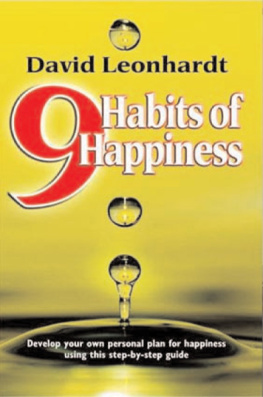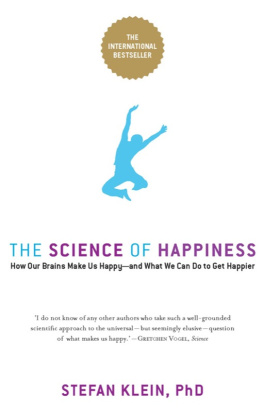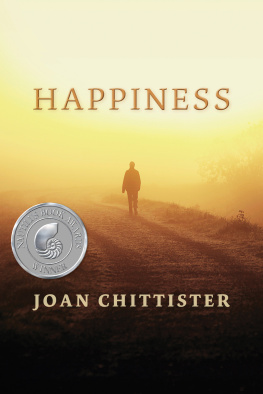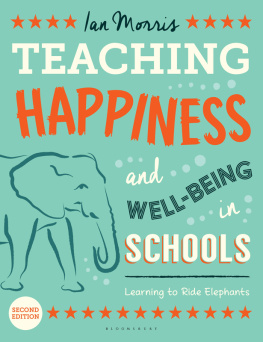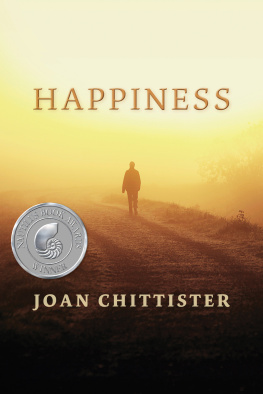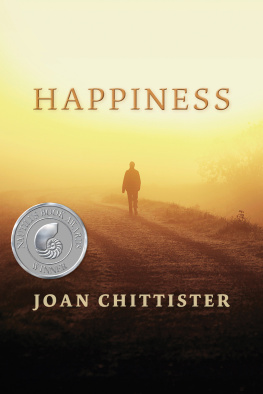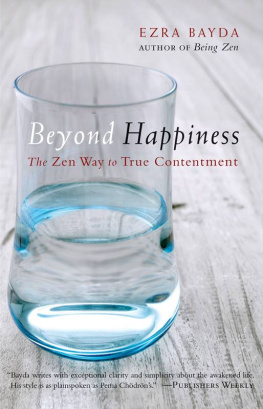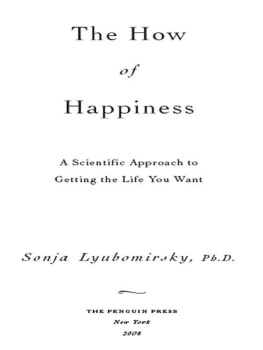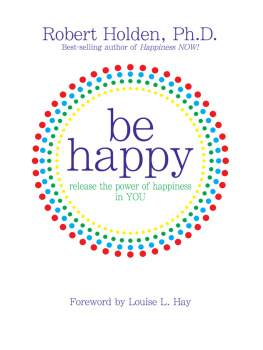About the Author
Anthony Seldon is one of Britains most prominent headteachers and is the acclaimed biographer of several recent prime ministers and author of many books on contemporary history and policy. In education, he is most associated with trenchant views on creative learning; bridging the gap between state and independent schools; holistic education and the teaching of happiness, which he introduced at his present school, Wellington College, in 2006. In this book, he draws widely on his experience of twenty years as a Head and thirty years in schools, as well as being the father of three children. He has been regularly asked to advise government on education and history, is the founder (with Lord Layard and Geoff Mulgan) of the national body Action for Happiness, launched in April 2011 and is the president of the International Positive Education Network that works to promote positive education for all globally.
Chief Researcher Adam Davidson
Illustrator Richard Pope

Acknowledgements
The author would like to express his gratitude to his principal partners: Adam Davidson, for being a remarkable researcher, and Richard Pope, for all his illustrations. Many of the thoughts and ideas in this book have come from our enlivening discussions. My thanks to Christopher Everett, Anthony Goodenough, Louise James, Tony Morris, Tim Novis, Ruth Scott, Adam Seldon, Joanna Seldon, Jan Stannard, Raine Walker and Simon and Jo Walker for their kind and wise feedback on the manuscript. My colleagues at Wellington College, above all Ian Morris, Delyth Lynch, Guy Williams, Iain Henderson, Robin Dyer, Tom Hicks, Katy Granville-Chapman (the happiest person I know), Angela Reed and Hani Edwards, have been supportive and a source of ideas throughout the evolution of my thinking. I cannot thank enough my partners at Action for Happiness, including Richard Layard, Geoff Mulgan, Vanessa King, Nic Marks, and Mark Williamson. I have learnt much from listening to Adam Seldon, Marty Seligman, Tal Ben-Shahar, James OShaughnessy, Robert Easton, James Arthur, Charlotte Style, Peter Read, Jimmy Mulville, David Yelland, Lil Jones, Caroline Green, Anthony OHear, Jane Lunnon and Derren Brown. I owe much to Larry Culliford, author of the insightful Psychology of Spirituality. I started writing the book while staying with our friends John and Louise James and finished it staying with Debbie and Felix Francis, who provided a home during Joannas periods in hospital. Rachel Kelly, author of the stunning Black Rainbow, suggested the publisher, readily approved by my agent Ed Victor. Finally, my thanks to the extraordinary Liz Gough, Emily Robertson and all the staff at Hodder & Stoughton for all their help and encouragement, and above all, to Helen Coyle for her breathtakingly good and incisive copy editing.
Also by Anthony Seldon
Churchills Indian Summer (1981)
By Word of Mouth (with Joanna Pappworth, 1983)
Contemporary History (ed., 1987)
Ruling Performance (ed., with Peter Hennessy, 1987)
Political Parties Since 1945 (ed., 1988)
The Thatcher Effect (ed., with Dennis Kavanagh, 1989)
PoliticsUK (joint author, 1991)
Conservative Century (ed., 1994)
The Major Effect (ed., with Dennis Kavanagh, 1994)
The Heath Government 1970-1974 (ed., with Stuart Ball, 1996)
The Contemporary History Handbook (ed., with Brian Brivati, etc, 1996)
The Ideas That Shaped Post-war Britain (ed., with David Marquand, 1996)
How Tory Governments Fall (ed., 1996)
Major: A Political Life (1997)
10 Downing Street: An Illustrated History (1999)
The Powers Behind the Prime Minister (with Dennis Kavanagh, 1999)
Britain Under Thatcher (with Daniel Collings, 2000)
The Foreign Office: An Illustrated History (2000)
The Blair Effect 19972001 (ed., 2001)
A New Conservative Century? (with Peter Snowdon, 2001)
Public and Private Education: The Divide Must End (2001)
Partnership not Paternalism (2002)
Brave New City (2002)
New Labour, Old Labour (ed., with Kevin Hickson, 2004)
Blair (2004)
The Conservative Party: An Illustrated History (with Peter Snowdon, 2004)
The Blair Effect20015 (ed., with Dennis Kavanagh, 2005)
Blair Unbound (2007)
Blairs Britain (ed. 2007)
An End to Factory Schools (2009)
Trust: How We Lost it and How We Get it Back (2009)
Brown at 10 (with Guy Lodge, 2010)
Why Schools? Why Universities? (2010)
The Politics of Optimism (2011)
Public Schools and the Great War (with David Walsh, 2013)
Schools United (2014)
The Architecture of Diplomacy: The British Embassy in Washington (with Daniel Collings, 2014)
The Coalition Effect (ed., with Mike Finn, 2015)
Downing Street: An Illustrated History (2015)
Cameron at 10 (with Peter Snowdon, 2015)
1.
Pleasure, Happiness, Joy
Most of us profess to love happiness and avidly seek it out. Similarly, most of us hate unhappiness and do everything we can to run from it, to suppress or deny it. Odd, then, that we rarely think deeply about what it is that makes us happy and unhappy, much less examine our role in bringing about those states in our lives. Happiness and unhappiness just seem to happen to us. We either revel in them or suffer from them, helpless and supine. But happiness and unhappiness occur for reasons. This book will explore them. Reading it will allow us to maximise our happiness and minimise our unhappiness. If we want. More than that, it will push us beyond happiness to pursue joy.
This book is full of questions with spaces for you to fill in your responses. Why? Because we mostly read books passively and however much we may agree with them, we are not changed by them. This book seeks to bring about change. It will work if you engage actively with it.
We are all responsible for our lives. Some of us are born with material advantages and opportunities, others with a great propensity towards happiness; some people experience more difficulty in their lives. But we all have free will; we can all make active and deliberate choices about changing the state in which we find ourselves. We just need to begin. The more we exercise choice, the more freedom we have: the less we exercise it, the more we become victims to circumstance.
This book is about the discovery of personal autonomy and freedom. It is about the reclaiming of personal efficacy, about growing in self-awareness and finding ourselves. It is a book that, if you choose, will put you back in the driving seat. Because I believe that, ultimately, none of us truly want to be unhappy. It will take you on a journey in which you will discover profound meaning. Every step of the way will make you feel lighter as you discover your own personal truth in life.
The pursuit of happiness (or joy, as I prefer to term the state of supremely easeful well-being that is this books aim for your life) is often portrayed as self-centred. Actually, it is anything but selfish. Relatives, friends and colleagues all benefit when we are happy. Their lives are diminished when we are unhappy. The pursuit of joy is a moral duty.
Three states: pleasure, happiness, joy

